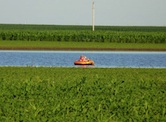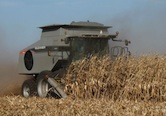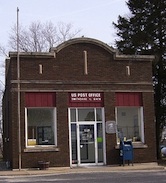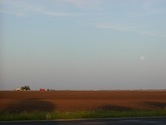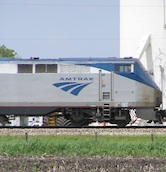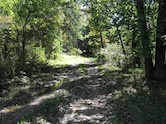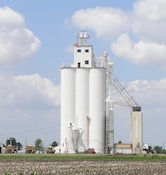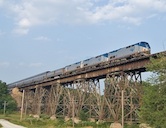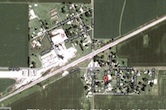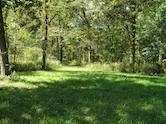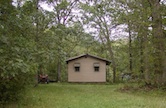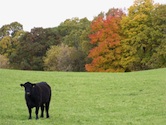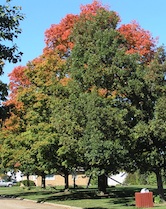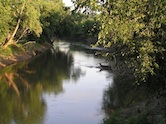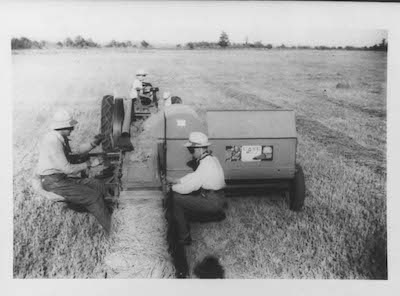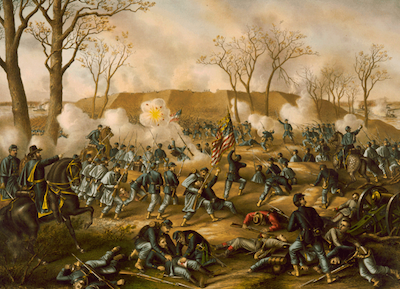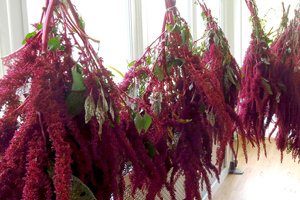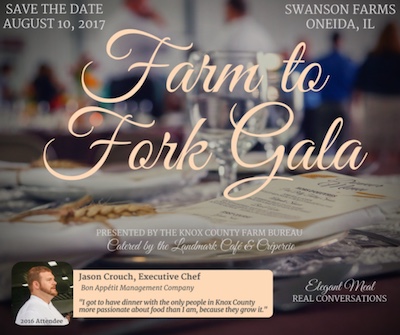Food is important for everyone
Maximizing Profit in Low Profit Times
A connection between land, producer, produce, and consumer
When I was a young farmer, one old-guy annoying behavior was to remind me how easy it was to be a farmer in the modern world. As a polite young man, I just smiled and nodded through their reminiscences. The first thing they mentioned were the modern cabs and then somehow the operation of a Case poke and tie baler always arose. I agreed it was a tough job, because my father had related his experience. I usually redirected or tried to end their regaling me about how well off the young farmer was. I said my father and his friend who had been his partner doing the poke and tying, always said, “people talk about the Good Old Days; in their opinion the good old days were a lot good old hard work.” I hesitate to suggest or offer advice to those of you currently involved in making a living by farming. It is easy to sit on the sideline and suggest to the coach what play to call. Referees often require a fan pointing out the proper call. I only hope a different perspective could unleash some thoughts about new possibilities in your region.
Case poke and tie baler, "Good Ol Hard Work"
I want to suggest a way to help working farm families add some additional revenue streams. I understand how hard it is to work in new things. Each farm operation is different; what works for one may not be suitable for another. I additionally promise I will not make you smile and nod while I describe how hot it was, as we handled 1500 or 1600 square bales behind that New Holland baler nearly every good summer afternoon. This was always my welcome home for summer vacation.
I was invited to an event sponsored by the Knox County Farm Bureau last summer. It was a “farm to fork” dinner featuring locally produced food. It caused me to start thinking of ways to improve local food supplies and add some revenues while cash corn is well below $4.00. While I started writing this we may have kicked off a trade war. I saw one analyst predict a 20% reduction in soybean prices if this plays out as it seems to be. (As a public service announcement, I do meander in my writing.) I am reading another book on the Civil War and just read of a Confederate Colonel who ordered a captain to take six men to “go stir up those fellows” thinking it was small Union cavalry picket. They discovered an entire Union brigade; the now stirred-up brigade decided to advance. The Confederate Colonel immediately realized he would be overwhelmed and began a strategic withdrawal. His captain sardonically asked if he wanted those fellows stirred up anymore? The Colonel smiled. No, he thought the Union brigade was stirred up enough. In this new trade war, I think we’ve stirred those fellows up enough.
Ft Donelson -- Dovet TN 1862
I want to suggest additional revenue streams that may fit into current land use. I recognize a farmer already has a job and doesn’t need additional places to put time or money. The resources you control do have potential profit opportunities if a business savvy person could make use of them. I have driven through more struggling small towns and rural communities than I can count. There are people who would welcome a way to afford to live in our low population areas. Each region of the country has its own challenges and unique opportunities. I am going to outline some illustrations and hope each community can extrapolate to their own circumstance. The economic models of small scale production must adapt to the macro economic environment. Our modern world offers opportunities to this generation that were unavailable when some of these ideas were previously promoted. Essentially there is nothing new under the sun, just new wrappers.
In the 1980’s I was a real farmer, and it was a struggle. Many people began promoting diversification and alternative methods of production. I feel there were two flaws to the strategies promoted at that time. One, they expected the farmer to implement them and they failed to recognize the unique challenges of each locality. Yes, some u-pick berry farms worked great on farms just outside of an urban center. Others located hours away from an urban center were failures. Berries were going to rot on the vine without U-Pickers. Also, when you come right down to brass tacks, as some might phrase it, no one really wants to go pick berries. No one thinks migrant workers have it easy. Two, the alternative farming plans often failed to provide a strategy to fit into the existing market channels. Amaranth may be the hottest new grain with the urban gentrification crowd but haul a semi load to your local elevator co-op and find out what they tell you to do with it.
Amranth drying
I am suggesting that serious business managers driven by a profit motivation can enhance revenues on any farm operation but need not be the farm families themselves. I may be wrong, maybe your family is just sitting around during the day in the spring and the fall wondering what to do with all the leisure time. I doubt it. I think there are individuals looking to succeed in your struggling rural communities or willing to come try a start up there. These entrepreneurs would love to work hard at building a successful business. Creating a profitable business is not an easy task, but there are people who can do it. Our current time offers new tools and new avenues to reach markets. I think it offers opportunities never before available to farmers and those individuals looking to create auxiliary businesses.
The Internet has revolutionized what we define as a market and marketing strategies. Fortunately, our rural telephone cooperatives are leading the way in bringing broadband to our rural communities. In the areas they now serve businesses can operate with the same reach as any other location in the world. Our small struggling rural communities can have flourishing businesses with creative web sites. Their market can be wherever the logistics of shipping their product will reach. Today a business model is possible with profit opportunities far beyond the reach of a u-pick berry farm. There is a business in Galesburg, IL, called Sitka Salmon Shares. It connects actual salmon fishermen with consumers. The same model could work for pork and cattle producers. The steaks we used to pull out of our freezer are better than the ones people are buying in grocery stores. A system of connected consumers could make local operations, even those FFA and 4H projects, far more profitable.
Salmon Sitka Shares Galesburg IL
Growing up on a farm in the 1950’s we were tied to seasons far more than today. Seasons included strawberry, blackberry, green bean, sweet corn, tomato, and others. The foods our family processed either canned or froze were better than the foods I can buy today at a grocery store. I am going to good markets not discount grocers and still not finding equal food products. Therefore, there is a quality component a startup can leverage in our current market to distinguish themselves. A local business person building a connection to customers over the Internet could establish a production and distribution facility in small town. They might feature a product the region is known for producing. Having connections to local farms these business people could then establish enough small areas on these farms to become a large area of production. Five or six apple trees is not much, but many areas with a few apples trees becomes an orchard intermingled amongst existing agricultural production. Let me cite a few examples of what I wish I could just buy and it would be as good as our family had: apple sauce, green beans, strawberry-rhubarb jam, corn, pickled beets, tomato juice, bread and butter pickles, even that concoction my mother called Christmas relish. Now, my mother was a great cook, but what made these things great was the garden freshness.
It is hard to farm and garden; other people will need to be involved because farmers already have a job in the growing season. Small crops and produce are labor intensive. Sitting at a farmer’s market on a Saturday morning is a time-consuming task. As I learned at the “farm to the table” event other groups do exist trying to produce a variety of local products. Some are focused on community gardens. Other are projects of horticultural classes at local schools. Small businesses could increase the size of these efforts and reach a wider market. Marketing to places outside our rural communities and bringing dollars back to small towns could stabilize local economies. Every farm has some unproductive areas, corners or old farm sites that mostly grow grass. These spaces could raise a variety of crops. If a business had an agreement with a number farms what is too small to mess with would become an economically viable business. These would be only supplemental revenues to a farm, but what if a small business in your local town could offer enough revenue to pay your yearly fuel bill?
The “Farm to Fork” dinner was food for thought for me.
...
Knox County Farm Bureau
Forgottonia
is a place where you can endlessly wander the lonely roads, and
never once miss the fast lane. The name Forgottonia captures an
image of a region, off the beaten path, which is very true of
Western Illinois.


